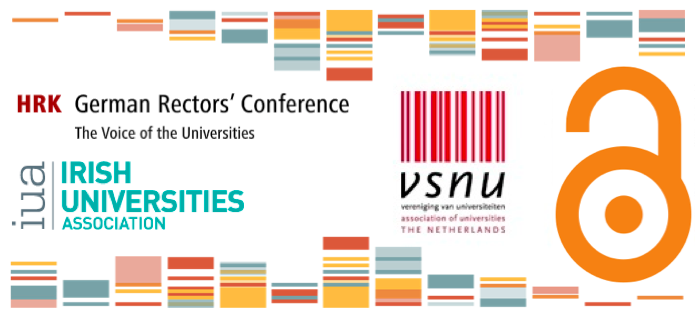 A little while ago, I argued on this blog that Irish competition and copyright law should be amended to enable open access to universities’ research. In particular, the Irish Universities Association (the IUA), the representative body of the universities which employ academics whose research is published by the large publishers should negotiate the terms on which their employees will transfer copyright in their research and content to the publishers. They could this, either on their own, or jointly with the Technological Higher Education Association (the THEA), the representative body for Institutes of Technology in Ireland. This co-ordination and collaboration could improve the terms offered by publishers both to individual academics when submitting their research for publication, and to institutions for subscriptions to research resources – and it could in particular pave the way to ensuring greater open access to research. Because such co-operation could amount to an anti-competitive agreement, decision or concerted practice in breach of section 4 of the Competition Act, 2002, I suggested in that post an amendment to that section. I now learn that similar joint-action has been taken in the Netherlands and Germany, and without such legislative cover.
A little while ago, I argued on this blog that Irish competition and copyright law should be amended to enable open access to universities’ research. In particular, the Irish Universities Association (the IUA), the representative body of the universities which employ academics whose research is published by the large publishers should negotiate the terms on which their employees will transfer copyright in their research and content to the publishers. They could this, either on their own, or jointly with the Technological Higher Education Association (the THEA), the representative body for Institutes of Technology in Ireland. This co-ordination and collaboration could improve the terms offered by publishers both to individual academics when submitting their research for publication, and to institutions for subscriptions to research resources – and it could in particular pave the way to ensuring greater open access to research. Because such co-operation could amount to an anti-competitive agreement, decision or concerted practice in breach of section 4 of the Competition Act, 2002, I suggested in that post an amendment to that section. I now learn that similar joint-action has been taken in the Netherlands and Germany, and without such legislative cover.
The deal between the Association of Universities in the Netherlands and Elsevier (joint press release) was concluded at the end of November:
In unique deal, Elsevier agrees to make some papers by Dutch authors free
A standoff between Dutch universities and publishing giant Elsevier is finally over. After more than a year of negotiations—and a threat to boycott Elsevier’s 2500 journals—a deal has been struck: For no additional charge beyond subscription fees, 30% of research published by Dutch researchers in Elsevier journals will be open access by 2018.
“It’s not the 100% that I hoped for,” says Gerard Meijer, the president of Radboud University in Nijmegen, the Netherlands, and the lead negotiator on the Dutch side. “But this is the future. No one can stop this anymore.” …
The German action, taken by the Alliance of German Science Organisations, represented by the German Rectors’ Conference, is similar:
No full-text access to Elsevier journals to be expected from 1 January 2017
From 1 January 2017 on, Göttingen University — as well as more than 60 other major German research institutions — is to be expected to have no access to the full texts of journals by the publisher Elsevier. …
The DEAL project, headed by HRK (German Rectors’ Conference) President Prof Hippler, is negotiating a nationwide license agreement for the entire electronic Elsevier journal portfolio with Elsevier. Its objective is to significantly improve the status quo regarding the provision of and access to content (Open Access) as well as pricing. It aims at relieving the institutions’ acquisition budgets and at improving access to scientific literature in a broad and sustainable way. …
Given that the Netherlands and Germany have competition laws similar to section 4, I find it interesting that the publishers came to an agreement in the former and are continuing to negotiate in the latter, in both cases without recourse to the powerful Dutch or German competition authorities. I hope that the Germans are as successful as the Dutch were, and that the IUA (perhaps jointly with the THEA) will soon follow suit.